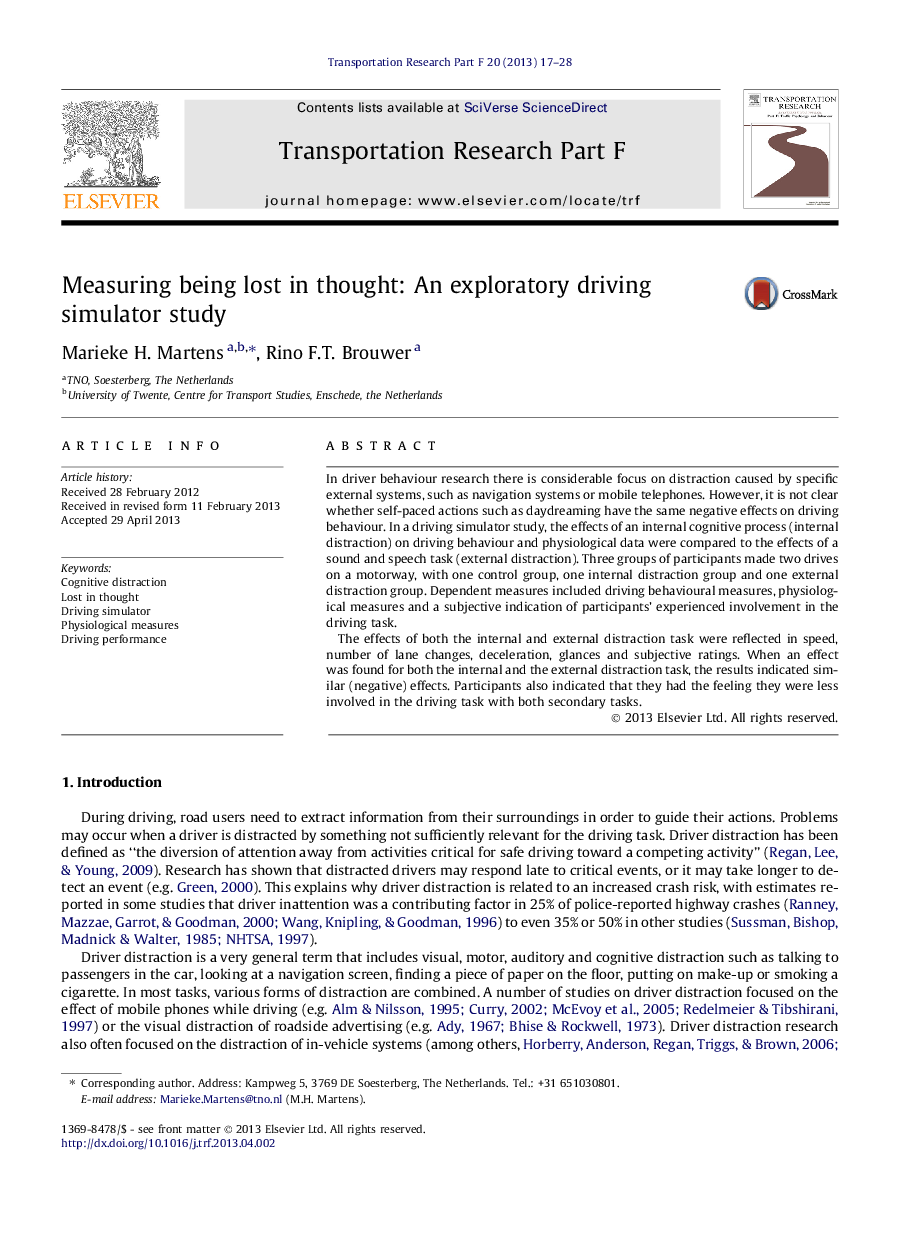| کد مقاله | کد نشریه | سال انتشار | مقاله انگلیسی | نسخه تمام متن |
|---|---|---|---|---|
| 897787 | 1472460 | 2013 | 12 صفحه PDF | دانلود رایگان |

• Being lost in thought during driving is reflected in various dependent variables.
• The effects are more distinct on driving related parameters than on physiological parameters.
• There is a strong link between attentional involvement in driving task and driving related effects.
• Effects of being lost in thought are smaller than a system-paced secondary task with auditory cues.
• There are many individual differences.
In driver behaviour research there is considerable focus on distraction caused by specific external systems, such as navigation systems or mobile telephones. However, it is not clear whether self-paced actions such as daydreaming have the same negative effects on driving behaviour. In a driving simulator study, the effects of an internal cognitive process (internal distraction) on driving behaviour and physiological data were compared to the effects of a sound and speech task (external distraction). Three groups of participants made two drives on a motorway, with one control group, one internal distraction group and one external distraction group. Dependent measures included driving behavioural measures, physiological measures and a subjective indication of participants’ experienced involvement in the driving task.The effects of both the internal and external distraction task were reflected in speed, number of lane changes, deceleration, glances and subjective ratings. When an effect was found for both the internal and the external distraction task, the results indicated similar (negative) effects. Participants also indicated that they had the feeling they were less involved in the driving task with both secondary tasks.
Journal: Transportation Research Part F: Traffic Psychology and Behaviour - Volume 20, September 2013, Pages 17–28